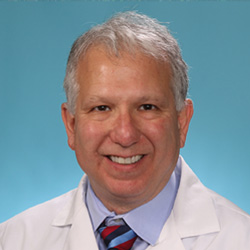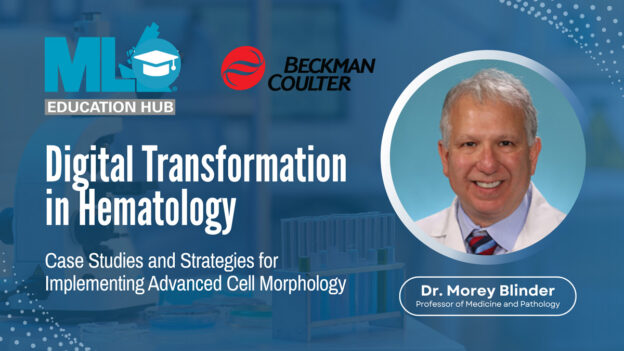Date: September 9, 2025 | 11:00 AM EST / 10:00 AM CST
Duration: 1 Hour
Credits: 1
Presenter: Dr. Morey Blinder
Sponsor: Beckman Coulter
Cost: Free
Join us for an in-depth session that explores the critical shift from manual to digital microscopy and how this transition is reshaping laboratory diagnostics. We’ll discuss the challenges and learning curves that labs face when adopting digital workflows, share real-world case studies where digital morphology directly impacted patient care, and highlight the types of abnormal cells more easily identified through digital platforms. Whether you’re early in your digital journey or looking to optimize your current processes, this webinar will offer practical insights and examples to guide your team.
Learning Objectives
- Describe the key benefits and drivers for transitioning from manual to digital microscopy in clinical practice.
- Recognize common challenges and learning curves associated with adopting digital morphology workflows.
- Identify abnormal cell types that are more readily classified or visualized using digital microscopy tools.
- Analyze case examples where digital morphology enabled unique findings that influenced patient outcomes.
About the Presenter

Dr. Morey Blinder is Professor of Medicine and Pathology & Immunology at Washington University School of Medicine in St. Louis, Missouri. Dr. Blinder earned his undergraduate degree at the University of Notre Dame in South Bend, Indiana. He completed his medical degree at the St. Louis University School of Medicine and trained at the University of Illinois in Chicago as an intern and resident in Internal Medicine. His sub-specialty training was in Hematology and Oncology at the University of Washington in Seattle, followed by research at Washington University in St. Louis, where he has continued his career. He currently serves as the Medical Director at the Siteman Cancer Center Laboratory, which operates independently through the Division of Hematology at Washington University, which has continuously operated since September 1938. In addition to Dr. Blinder’s interest in laboratory hematology, he actively maintains a clinical and academic practice that cares for patients with hematologic diseases, including sickle cell disease, iron deficiency, and other anemias, along with bleeding and clotting diseases.
Supported in part through an unrestricted educational grant by:





